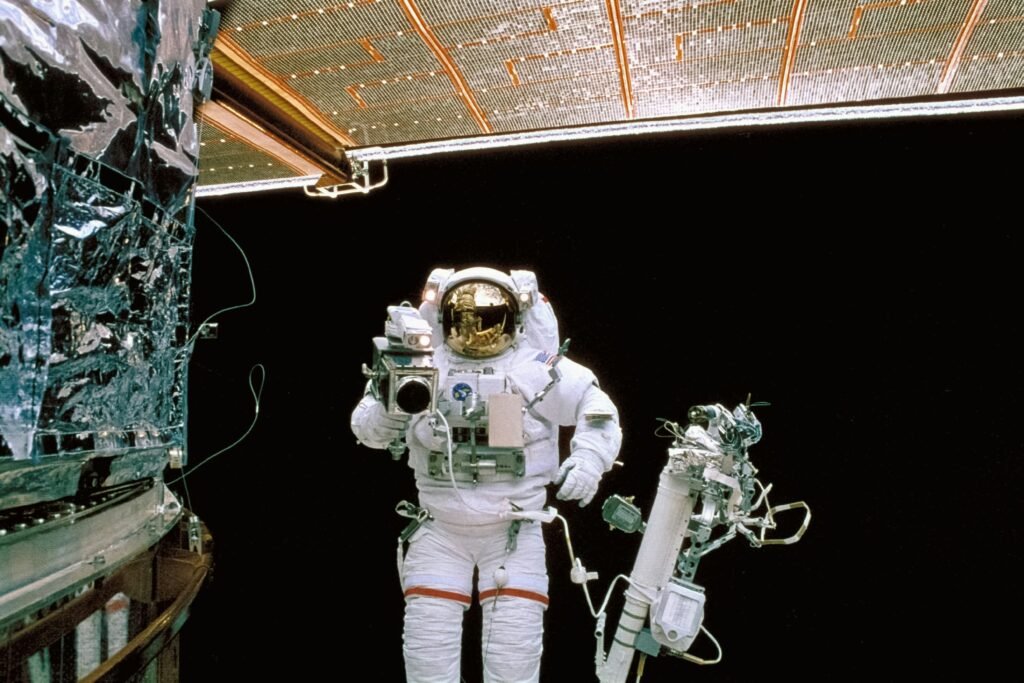Have you ever looked up at the stars and wondered how rockets launch into space or how satellites stay in orbit? If so, you’re already thinking like a space engineer. Understanding the basics of space technology is the first step toward building a career in this exciting and futuristic field.
Space engineering focuses on designing, building, and maintaining systems that operate in outer space—like satellites, spacecraft, space stations, and even tools for astronauts. For aspiring engineers, learning space tech basics not only opens the door to careers in aerospace but also builds skills useful in other high-tech industries.
What Is Space Engineering?

Space engineering is a branch of engineering that focuses on the technologies and systems used in space exploration. This includes rockets, spacecraft, communication systems, and tools that help astronauts live and work in space. Engineers in this field must know how machines work in places with no air, no gravity, and extreme temperatures.
Agencies like NASA created many programs to help students and young people learn about space tech. With more private companies now joining this field, like SpaceX and Blue Origin in the US, there are more chances than ever to build a career in space.
Why Is Space Tech Important?
Learning the basics of space tech for engineers is not just for those who want to fly rockets. It helps young engineers understand how technology works in difficult conditions. The skills you learn in this field, like solving problems, working with technology, and creative thinking, are useful in many other jobs too.
Today, satellites help us use GPS, watch the weather, and even make phone calls. Engineers are the ones who build and maintain these systems. So, if you want to play a role in shaping the future, learning how space tech works for engineers is a great place to start.
Key Topics in Space Engineering

If you're just starting, here are some important areas you should learn about in space tech:
1. Orbital Mechanics:
This is about how satellites and spacecraft move around planets. Engineers need to understand this to send rockets to the correct destination and keep satellites in orbit.
2. Rocket Engines (Propulsion Systems):
These engines push rockets into space. Learning how they work helps you understand how we reach the Moon, Mars, and beyond.
3. Thermal Control:
Space is very hot in the sun and very cold in the shade. Engineers must design systems to keep Spacecraft at the right temperature.
4. Spacecraft (Communication Systems):
We need to send and receive signals from satellites and space missions. This includes internet space, radio signals, and data sharing.
5. Materials Science:
Spacecraft must be strong but light. Engineers study special materials that can survive harsh conditions in space.
6. Spacecraft (Control Systems):
Control systems help spacecraft stay on the right path and keep their balance while flying in space.
How to Start Learning Space Tech

Here are some easy ways to start your learning journey:
Take Online Courses:
Platforms like Coursera, edX, Udemy, and FutureLearn offer beginner-level courses on rocket science, space systems, and satellite engineering.
- Look for programs from top universities like MIT, Stanford, and Caltech
- NASA’s STEM resources also offer free tutorials for students
Watch Videos and Read Articles:
YouTube channels like NASA, ESA, and popular science creators break down complex space tech in simple terms. Also, check out blogs and news platforms like Space.com or Scientific American.
Join Space Clubs or Online Communities
Many schools and colleges have space science clubs. You can also join online communities where students collaborate on space challenges, like:
- CanSat (mini satellite competitions)
- Moon rover or Mars rover design contests
- Virtual rocket building simulators
Visit Science Museums and Space Centers
If you have access to a science museum, planetarium, or space center, visit. Many of them offer interactive exhibits, workshops, and even student programs that bring space tech to life.
How to Build a Career in Space Tech
If you are serious about a career in space, here’s how you can plan your path:
Choose the Right Degree: After high school, you will apply for university programs in aerospace, mechanical, or electrical engineering. These degrees give you the knowledge needed for space careers.
Apply for Internships: Agencies like NASA and the UK Space Agency offer internships. Many private companies also hire students during the summer to work on real projects.
Follow the Latest News: Stay updated by following NASA, SpaceX, and other companies on social media. This helps you learn about new trends and job opportunities.
What’s Coming Next in Space Tech?
The future of space engineering is full of new ideas. Here are some exciting trends:
- Reusable Rockets: Companies are making rockets that can land and fly again. This lowers the cost of space travel.
- Smaller Satellites (CubeSats): These are low-cost satellites that even students can help build.
- Space Tourism: In the future, people may go to space for fun. Space engineers will be needed to design safe and comfortable space rides.
Final Thoughts
You don’t need to be a genius or wait for college to start learning about space engineering. All you need is curiosity, determination, and access to the right resources. Whether you're watching educational videos, exploring online courses, or building your first model rocket, you’re already part of the journey.
Learning the basics of space tech for engineers is a foundation that can take you far—not just to outer space but also into careers in robotics, AI, communications, and beyond. So start asking questions, seeking out knowledge, and taking your first steps toward the stars. One day, you could be the engineer behind the next big leap for humanity.







